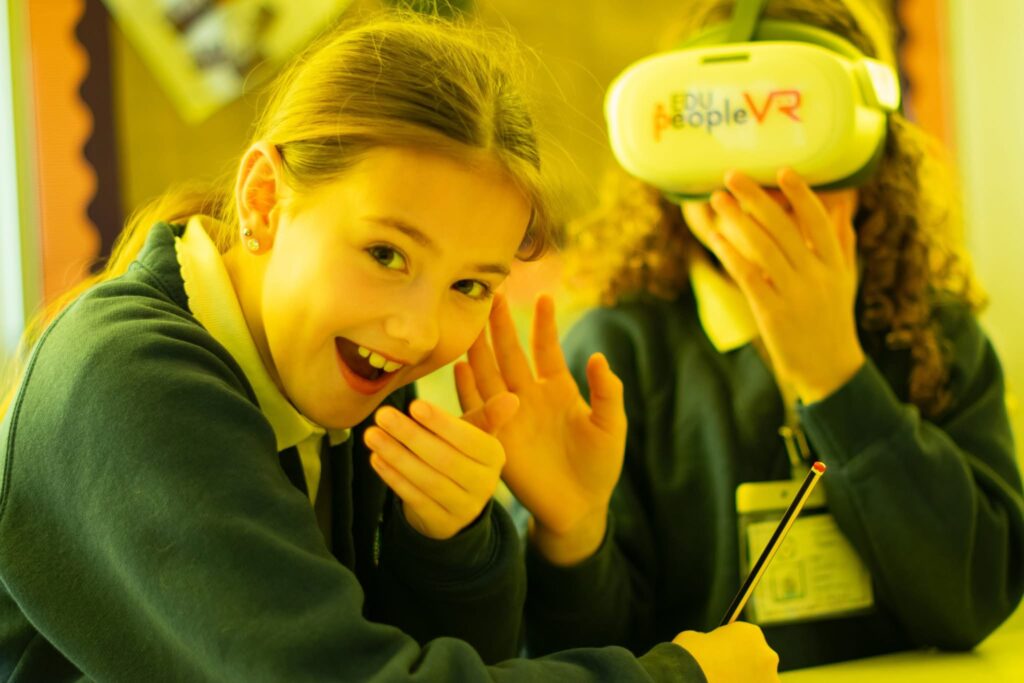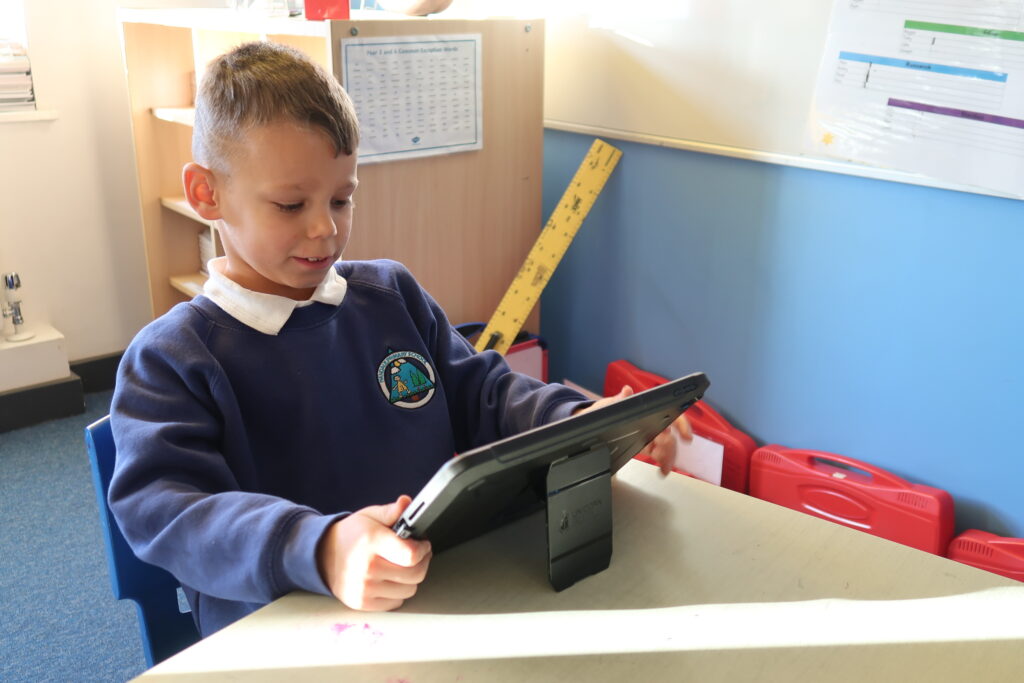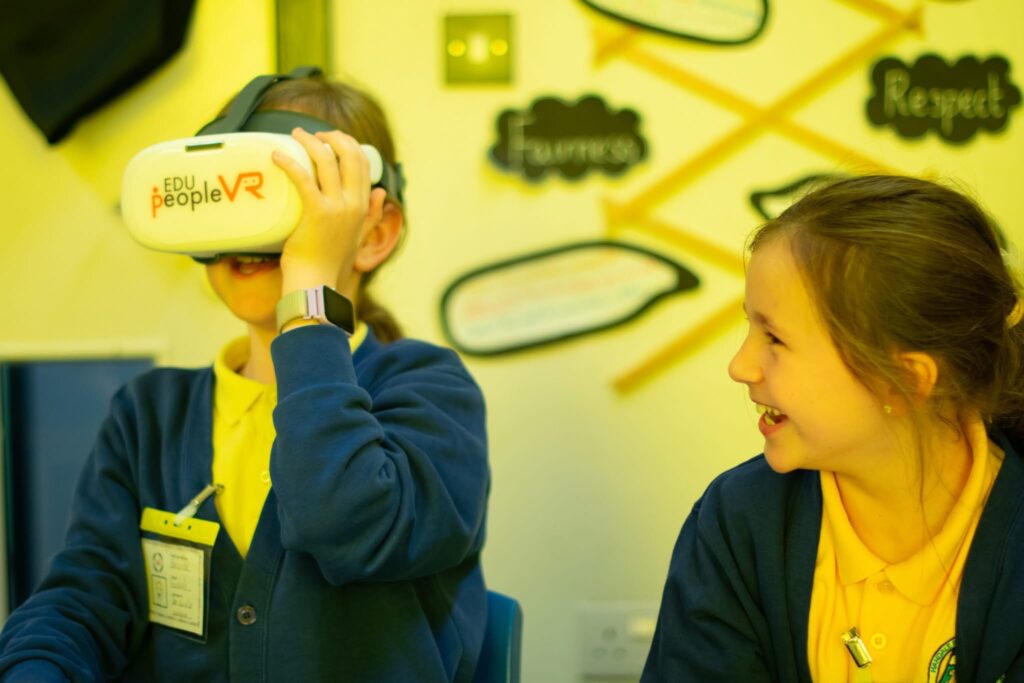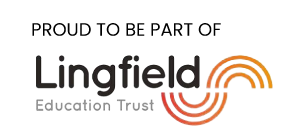As Computing Lead at Handale Primary School, I aim to introduce students to the world of technology and digital skills, aligning our teaching with the national curriculum. Witnessing their progress and newfound confidence as they navigate coding, digital literacy, and problem-solving brings me immense joy. We seamlessly integrate technology into various subjects enhances the overall learning experience and ensures we meet curriculum standards. Equipping our students with essential skills for the future, as outlined by the national curriculum, is an essential responsibility. We play a pivotal role in preparing students for success in today’s technology-driven society.
Miss Thompson
Vision and Intent for Computing at Handale
Through our computing curriculum we aim to give our pupils the life-skills that will enable them to embrace and utilise new technology in a socially responsible and safe way in order to flourish. We want our pupils to be able to operate in the 21st century workplace. We want children to become autonomous, independent users of computing technologies, gaining confidence and enjoyment from their activities. We want the use of technology to support learning across the entire curriculum and to ensure that our curriculum is accessible to every child. Not only do we want them to be digitally literate and competent end-users of technology but through our computer science lessons we want them to develop creativity, resilience and problem-solving and critical thinking skills. We want our pupils to have a breadth of experience to develop their understanding of themselves as individuals within their community but also as members of a wider global community and as responsible digital citizens.
Implementation
At Handale Primary School, we follow the SPARK Computing Curriculum Overview. This curriculum framework supports schools in making effective use of technology and reflects over two decades of experience in computing education.
The SPARK Computing Curriculum is designed to meet the requirements of the National Curriculum, which is outlined in just a few paragraphs per Key Stage. To ensure a comprehensive approach, we organise computing into three strands:
- Digital Safety, which is often integrated into the PSHE curriculum.
- Digital Agency, focusing on the ability to use technology to learn, create, and communicate effectively.
- Digital Literacy, ensuring that pupils have the essential skills and understanding to navigate and thrive in an increasingly digital world.
The curriculum provides a clear progression from Year 1 to Year 6, enabling children to build on prior learning year by year. Each year group explores key areas such as:
- Computing systems and networks
- Data and information
- Creating media
- Programming and coding
Internet safety is a core element, woven through all units of work to ensure children develop safe and responsible online behaviours.
Our resources are designed to equip pupils with essential skills for their future, aligning with a progression model that embeds computing across the broader curriculum. Teachers benefit from video walkthroughs to support their own professional development or to use directly in lessons with pupils.
Why is Computing successful at Handale?
- The Computing curriculum at Handale is broad and balanced.
- Vast amount of resources and available technology for children to use and explore.
- Children’s knowledge in computing is strong.
- Computing knowledge and skills have been planned out in a progressive way to allow clear progression in teaching and learning as children move through school.
We follow the National Curriculum Objectives for Computing at Handale…
Key Stage 1
Pupils should be taught to:
• Understand what algorithms are; how they are implemented as programs on digital devices; and that programs execute by following precise and unambiguous instructions
• Create and debug simple programs
• Use logical reasoning to predict the behaviour of simple programs
• Use technology purposefully to create, organise, store, manipulate and retrieve digital content
• Recognise common uses of information technology beyond school
• Use technology safely and respectfully, keeping personal information private; identify where to go for help and support when they have concerns about content or contact on the internet or other online technologies.
Key Stage 2
Pupils should be taught to:
• Design, write and debug programs that accomplish specific goals, including controlling or simulating physical systems; solve problems by decomposing them into smaller parts
• Use sequence, selection, and repetition in programs; work with variables and various forms of input and output
• Use logical reasoning to explain how some simple algorithms work and to detect and correct errors in algorithms and programs
• Understand computer networks including the internet; how they can provide multiple services, such as the world wide web; and the opportunities they offer for communication and collaboration
• Use search technologies effectively, appreciate how results are selected and ranked, and be discerning in evaluating digital content
• Select, use and combine a variety of software (including internet services) on a range of digital devices to design and create a range of programs, systems and content that accomplish given goals, including collecting, analysing, evaluating and presenting data and information
• Use technology safely, respectfully and responsibly; recognise acceptable/unacceptable behaviour; identify a range of ways to report concerns about content and contact.
Computing Long Term Plan
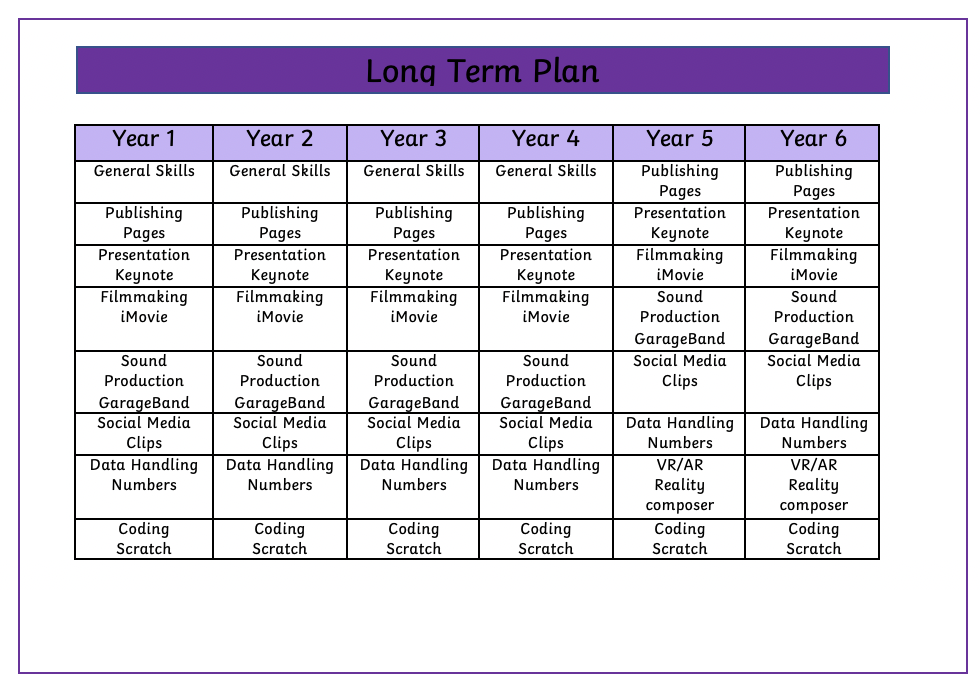
Assessment in Computing
At Handale, we use formative and summative assessment to assess computing.
Formative assessment opportunities are provided throughout each of the lesson plan documents. Formative assessment in computing takes place through questioning, observation, plenary classroom activities, and dialogue with students. Through formative assessment, teachers seek to find out where students are at, to use that information both to direct their preparation for the next teaching activities and to give students useful feedback to help them progress. Formative assessment can be used to surface misconceptions and for diagnosis of student difficulties.
Teachers and pupils at the end of a lesson, will take a picture of the activity that they completed. They will write a short explanation of what they have learnt. This can be used as evidence for teachers and subject lead. The subject lead can access all documents through the online system and monitor progress and progression throughout the school.
